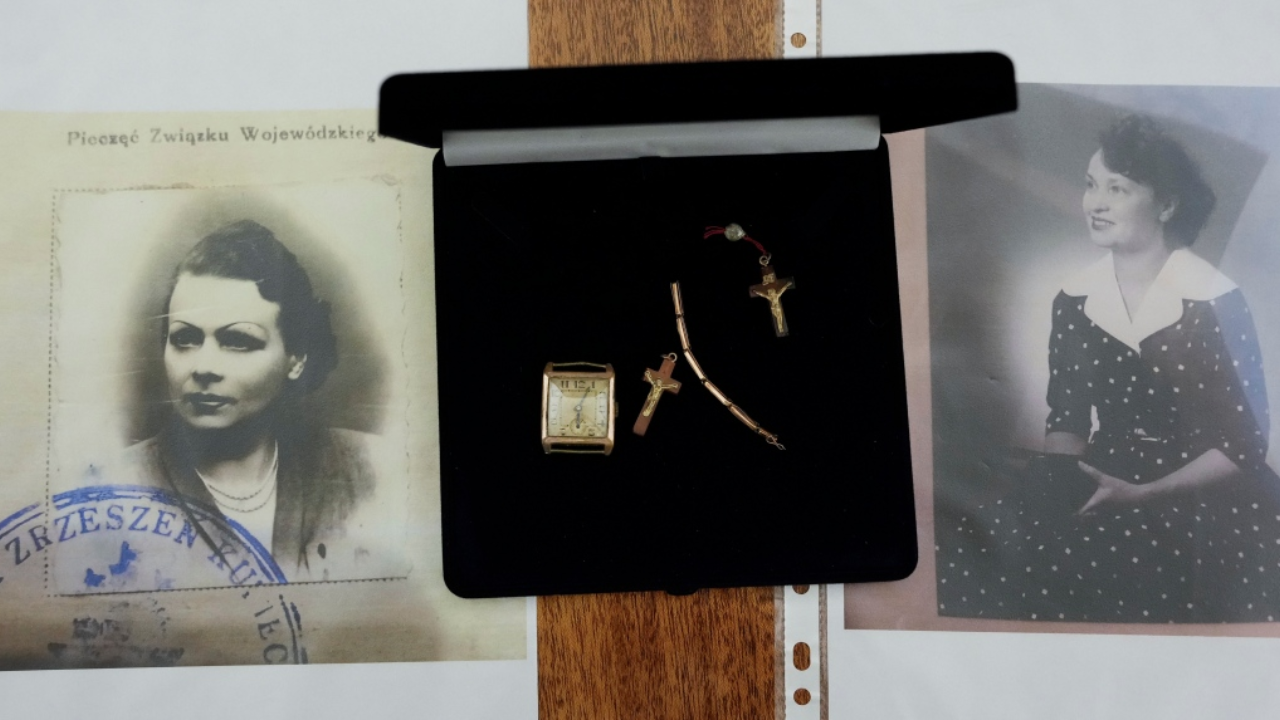
Nazi Germans took amber crucifixes and gold jewelry from Stanislawa Wasilewska, shown in her family photos. AP Photo
Stanislawa Wasilewska, a 42-year-old Polish woman, was captured by Nazi German troops on August 31, 1944, during the Warsaw Uprising. She was sent to Ravensbrück, a women’s concentration camp, and later transferred to the Neuengamme forced labour camp. There, her valuables were confiscated, including two amber crucifixes, part of a gold bracelet, and a gold wristwatch engraved with her initials and wedding date. Nearly 80 years later, these items were returned to her family at a poignant ceremony in Warsaw.
At this emotional event, Wasilewska’s grandson and great-granddaughter received her jewelry, among other families of Polish concentration camp victims who were reunited with their relatives' belongings. Some relatives, overwhelmed with emotion, shed tears as they received these deeply personal mementos. These items, which had been confiscated during the prisoners’ internment, were returned by the Arolsen Archives, a center dedicated to preserving the history of Nazi persecution.
Wasilewska’s great-granddaughter, Malgorzata Koryś, shared how this moment brought to light a family history they hadn’t fully known. The ceremony marked a significant chapter in their lives, reconnecting them with the past. Wasilewska, after surviving the Nazi concentration camps, was eventually taken to Sweden by the Red Cross, before returning to her homeland in Poland, where she was buried.
Another attendee, Adam Wierzbicki, was handed two rings belonging to his great-grandfather’s relatives, Zofia Strusińska and Józefa Skórka, who were captured along with Wasilewska and sent to the same camps. The return of these items held both sentimental and historical value for Wierzbicki, reminding him of his family’s legacy. He recounted a family tale of how a Swedish man fell in love with one of the sisters but, despite his offer to care for them, they decided to return to Poland after the war.
The Arolsen Archives houses around 2,000 items confiscated from concentration camp prisoners from over 30 countries, including wedding rings, watches, and other valuables. These items, often stored in envelopes with the prisoners’ names, have been preserved for decades with the aim of returning them to their rightful families. The Archives' restitution campaign, “Warsaw Uprising: 100 Untold Stories,” seeks to return the personal belongings of 100 victims, marking the 80th anniversary of the Warsaw Uprising.
For families, the return of these objects represents a deep connection to a painful past. As Floriane Azoulay, the director of the Arolsen Archives, noted, each object returned is the last personal item a person had before becoming a prisoner and losing their identity. Volunteers, such as Manuela Golc, who have found over 100 Polish families, face emotional moments when they deliver this news, often unveiling previously unknown family histories. Golc’s efforts to locate families are exhaustive, sometimes involving cemetery visits and leaving notes at gravesites when traditional methods fail.
The Warsaw Uprising, which began on August 1, 1944, was a desperate struggle by the Polish underground resistance to liberate Warsaw from the Nazis before Soviet forces arrived. After 63 days of intense fighting, the uprising ended in defeat, with around 200,000 casualties. The Nazis razed the city and expelled the remaining inhabitants. Poland lost six million of its citizens during the German occupation, with half of them being Jewish, leaving a profound scar on the nation.















